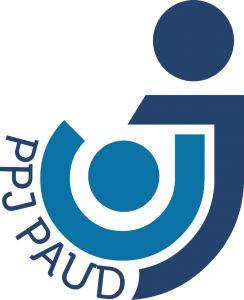Pengaruh Sosial Emosional Terhadap Kemandirian Anak Usia Dini Di TK Islam Cahaya Muslim School
DOI:
https://doi.org/10.30736/jce.v7i2.1615Keywords:
Pengaruh Sosial Emosional, Kemandirian Anak, Anak Usia Dini,Abstract
Penelitian ini bertujuan untuk mengungkap pengaruh sosial emosional (X) terhadap kemandirian anak usia dini di TK Islam Cahaya Muslim School (Y). Penelitian ini menggunakan jenis penelitian kuantitatif dengan pendekatan survei. Sampel penelitian ini menggunakan teknik random sampling. Jumlah sampel penelitian sebanyak 24 siswa. Pengambilan data menggunakan instrumen yang valid dan reliabel. Analisis data menggunakan regresi sederhana. hasil penelitian mengungkapkan: (1) Persamaan Linear Regresi Y = 7,736 + 0,651 X (2) Pengaruh sosial emosional terhadap kemandirian anak usia dii di TK Islam Cahaya Muslim School. (3) Uji signifikansi didapat persamaan garis regresi F hit lebih kecil dari 0,05 dengan demikian, regresi Y atau X adalah signifikan atau Sosial emosional berpengaruh terhadap kemandirian anak usia dini. (4) Koefisien korelasi (rxy) = 0,382 dan Fhit (Fchange) = 13,593, dengan p- value lebih kecil dari 0,05. Dengan demikian, koefisien korelasi X dan Y adalah berarti atau signifikan. Koefisien determinasi 0,382, yang mengandung makna bahwa 38,2 % variasi variabel kemandirian anak usia dini dapat dipengaruhi oleh sosial emosional.References
Age, Jurnal Golden, and Universitas Hamzanwadi. 2020. “Perilaku Sosial Emosional Anak Usia Dini.†Jurnal Golden Age 4(01):181–90. doi: 10.29408/jga.v4i01.2233.
Basuki, D. D., S. Subandriyo, and ... 2022. “Penguatan Kemandirian Hidup Peserta Didik Melalui Pembiasaan Kegiatan Ekstrakurikuler.†Tashfiyatuna … 01(01):45–55.
Dian, Wijanti. 2017. “Metode Penelitian Metode Penelitian.†Metode Penelitian Kualitatif 7(17):43.
Hong, Jon Chao, Yue Liu, Yinsheng Liu, and Li Zhao. 2021. “High School Students’ Online Learning Ineffectiveness in Experimental Courses During the COVID-19 Pandemic.†Frontiers in Psychology 12(August):1–9. doi: 10.3389/fpsyg.2021.738695.
Jannah, L. M., and C. Apriyanshah. 2021. “Pengaruh Sosial Emosional Terhadap Kemandirian Belajar Anak Usia 5-6 Tahun Di Masa Pandemi Covid 19.†Jurnal Pendidikan Tambusai 5(3):6246–52.
Jiao, Wen Yan, Lin Na Wang, Juan Liu, Shuan Feng Fang, Fu Yong Jiao, Massimo Pettoello-Mantovani, and Eli Somekh. 2020. “Behavioral and Emotional Disorders in Children during the COVID-19 Epidemic.†Journal of Pediatrics 221:264-266.e1. doi: 10.1016/j.jpeds.2020.03.013.
Kemendikbud. 2020. PERKEMBANGAN ANAK USIA DINI Direktorat.
Liu, Yuan, Zhi Ning, Yu Chen, Ming Guo, Yingle Liu, Nirmal Kumar Gali, Li Sun, Yusen Duan, Jing Cai, Dane Westerdahl, Xinjin Liu, Ke Xu, Kin fai Ho, Haidong Kan, Qingyan Fu, and Ke Lan. 2020. “Aerodynamic Analysis of SARS-CoV-2 in Two Wuhan Hospitals.†Nature 582(7813):557–60. doi: 10.1038/s41586-020-2271-3.
Reichenbach, Andreas, Andreas Bringmann, Elsevier Enhanced Reader, Constantin J. Pournaras, Elisabeth Rungger-Brändle, Charles E. Riva, Sveinn H. Hardarson, Einar Stefansson, Washington Navy Yard, Eric A. Newman, and David Holmes. 2019. “No 主観的å¥åº·æ„Ÿã‚’ä¸å¿ƒã¨ã—ãŸåœ¨å®…高齢者ã«ãŠã‘ã‚‹ å¥åº·é–¢é€£æŒ‡æ¨™ã«é–¢ã™ã‚‹å…±åˆ†æ•£æ§‹é€ 分æžTitle.†Progress in Retinal and Eye Research 561(3):S2–3.
Rohmah, Tuti. 2013. “Meningkatkan Kemandirian Anak Melalui Kegiatan Practical Life Kelompok-a Di Ra Al-Ikhlas Medokan Ayu Rungkut Surabaya.†PAUD Teratai 2(1).
Sa’diyah, Rika. 2017. “Pentingnya Melatih Kemandirian Anak.†Kordinat: Jurnal Komunikasi Antar Perguruan Tinggi Agama Islam 16(1):31–46. doi: 10.15408/kordinat.v16i1.6453.
Semarang, Di Kota, Nadia Ayu Mustikasari, and Dewi Rostyaningsih. n.d. EVALUASI KEBIJAKAN PERLINDUNGAN ANAK DARI TINDAK KEKERASAN.
TI UII. 2013. “Modul II ANOVA.†Modul II ANOVA 49.
Utami, Tri Wulan Putri, Muhammad Nasirun, and Mona Ardina. 2019. “Studi Deskriptif Kemandirian Anak Kelompok B Di PAUD Segugus Lavender.†Jurnal Ilmiah Potensia 4(2):151–60. doi: 10.33369/jip.4.2.151-160.
Downloads
Published
How to Cite
Issue
Section
License
Please find the rights and licenses in JCE (Journal of Childhood Education). By submitting the article/manuscript of the article, the author(s) agree with this policy. No specific document sign-off is required.
1. License
Use of articles will be governed by the Creative Commons Attribution - ShareAlike license as currently displayed on Creative Commons Attribution-ShareAlike 4.0 International License.
2. Author(s)' Warranties
The author warrants that the article is original, written by stated author(s), has not been published before, contains no unlawful statements, does not infringe the rights of others, is subject to copyright that is vested exclusively in the author and free of any third party rights, and that any necessary written permissions to quote from other sources have been obtained by the author(s).
3. User Rights
JCE (Journal of Childhood Education)'s spirit is to disseminate articles published are as free as possible but there is a little payment for publication. Under the Creative Commons license, JCE (Journal of Childhood Education) permits users to copy, distribute, display, and perform the work for commercial purposes. Users will also need to attribute authors and JCE (Journal of Childhood Education) on distributing works in the journal and other media of publications.
4. Co-Authorship
If the article was jointly prepared by more than one author, any authors submitting the manuscript warrants that he/she has been authorized by all co-authors to be agreed on this copyright and license notice (agreement) on their behalf, and agrees to inform his/her co-authors of the terms of this policy. JCE (Journal of Childhood Education) will not be held liable for anything that may arise due to the author(s) internal dispute. JCE (Journal of Childhood Education) will only communicate with the corresponding author.
5. Miscellaneous
JCE (Journal of Childhood Education) will publish the article (or have it published) in the journal if the article’s editorial process is successfully completed. JCE (Journal of Childhood Education)'s editors may modify the article to a style of punctuation, spelling, capitalization, referencing and usage that deems appropriate. The author acknowledges that the article may be published so that it will be publicly accessible and such access will be free of charge for the readers as mentioned in point 3.
JCE (Journal of Childhood Education) by Universitas Islam Lamongan is licensed under a Creative Commons Attribution-ShareAlike 4.0 International License.Based on a work at http://journalfai.unisla.ac.id/index.php/jce.













